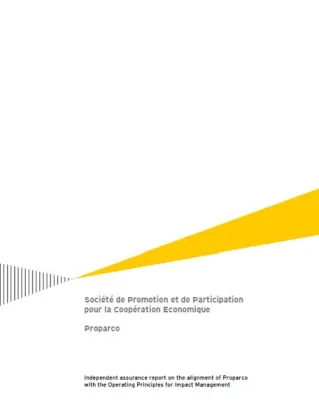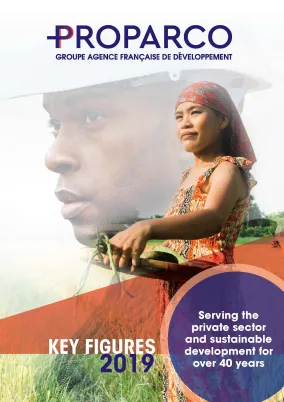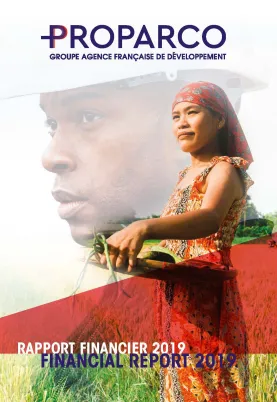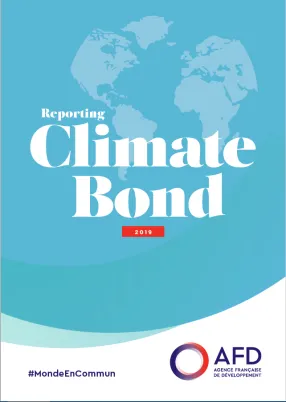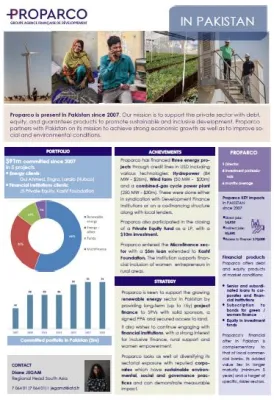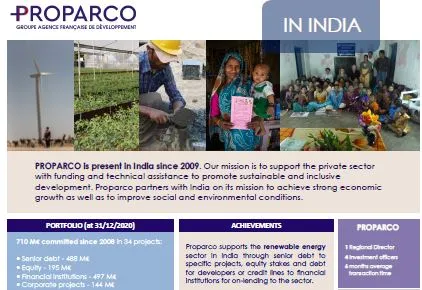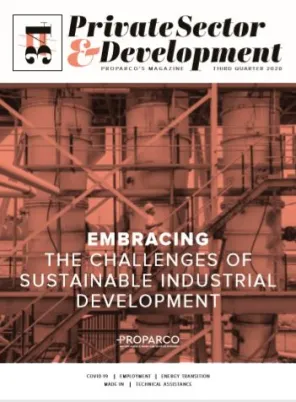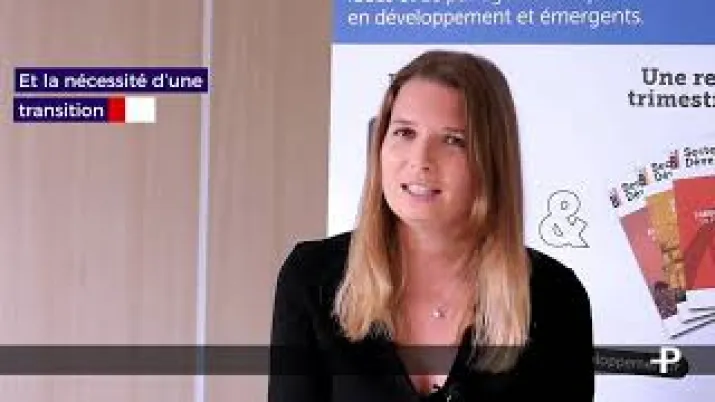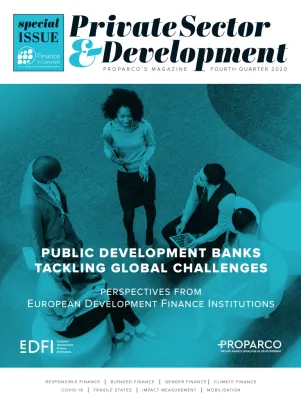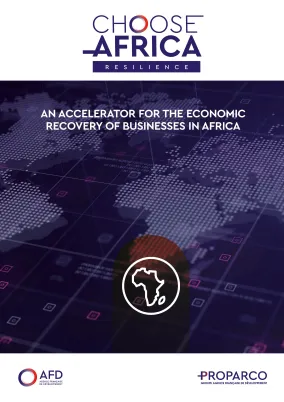Search results


2020 Independent verifier’s limited assurance report on the alignment of Proparco on the Operating Principles ...
Independent verifier's limited assurance report on the alignment of Proparco with the OPIM
Publication
Published on
Sustainable Development Report 2019
For the second year, Proparco is publishing its sustainable development report, which presents in particular our 2020-2022 strategy, our methods and the impacts of our projects in 2019. The projec...
Publication
Published on
Replay / Webinar: Boards and the virus: leadership in times of crisis
How to organise decision-making in a crisis: surviving, rebuilding and thriving in the “new normal”? This webinar for board members and senior managers aims to : • Give practical insights and e...
Publication
Published on
Webinar presentation - Boards and the Virus: Leadership in Times of Crisis
webinar presentation
Publication
Published on
Proparco Key figures - 2019
2019 was an exceptional year, as Proparco allocated €2.5BN of financing during the year to support 85 new projects (excluding FISEA and guarantees).
Publication
Published on
Financial security and anti-corruption
Corruption, fraud, money laundering, terrorist financing, anti-competitive practices, as well as any form of misappropriation of funds allocated to the private sector by Proparco, can cause long-lasti...
Editorial page
Reporting Climate Bond AFD 2019
The climate is a key focus area for AFD Group’s work. In 2019, AFD continued working towards the objectives set by its new climate strategy (2017-2022), which reflects its aim to help implement the Pa...
Publication
Published on
Flyer Proparco in Pakistan
Proparco is present in Pakistan since 2007. Our mission is to support the private sector with debt, equity, and guarantees products to promote sustainable and inclusive development. Proparco partners...
Publication
Published on
Transparency
Proparco has adopted a mechanism to release information on its operation and activity. It will allow stakeholders to gain a better understanding of the institution’s vision, mandates and action. This...
Editorial page
How does Proparco mobilise its funds to promote gender equality?
How does Proparco mobilise its funds to promote gender equality? Discover the criteria through which Proparco contributes to increasing women’s participation in developing countries’ economies. Lea...
Publication
Published on
Flyer Proparco in India
PROPARCO is present in India since 2009. Our mission is to support the private sector with funding and technical assistance to promote sustainable and inclusive development. Proparco partners with Ind...
Publication
Published on
Private Sector & Development #34 - Embracing the challenges of sustainable industrial development
Essential to economic development, the industrial sector is also a source of controversy (environmental impact, creation of decent jobs, etc.). The 34th issue of Private Sector & Development is dedica...
Publication
Published on
Embracing the challenges of sustainable industrial development
The new issue of the magazine Private sector and Development focuses on the challenges of sustainable industrial development . While industry is a source of much controversy, it is also frequently tou...
Publication
Published on
Special issue - Public development banks tackling global challenges
This special issue, published in collaboration with the EDFI association on the occasion of the first Finance in common world summit of November 2020, aims to highlight the increasingly important role...
Publication
Published on
Legal notice
The website www.proparco.fr (hereinafter “the website” or “Proparco’s website”) is published by Société de Promotion et de Participation pour la Coopération Economique (hereinafter “Proparco”), a Join...
Editorial page
Choose Africa Resilience
This brochure presents Choose Africa Resilience programme to support the economic recovery of African businesses. Through the Choose Africa initiative launched in 2019, Agence Française de&nb...
Publication
Published on

